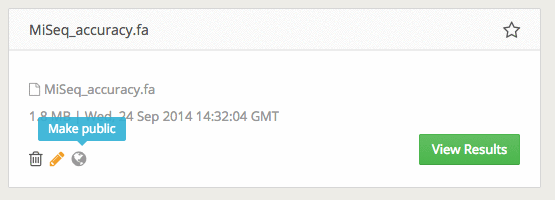Larger, improved reference libraries
We’re happy to announce that we’ve just released larger, improved microbial reference libraries on One Codex.
More data
The RefSeq Database now includes over 7,000 reference and representative genomes from NCBI, while the One Codex Database holds nearly 34,000 different bacterial, viral, fungal, and archeal genomes. This is more than a 45% and 20% increase, respectively, from the last releases of the RefSeq and One Codex databases. As with all of our data releases, you should continue to see improvements in the specificity of your analyses by using our more comprehensive reference libraries.
